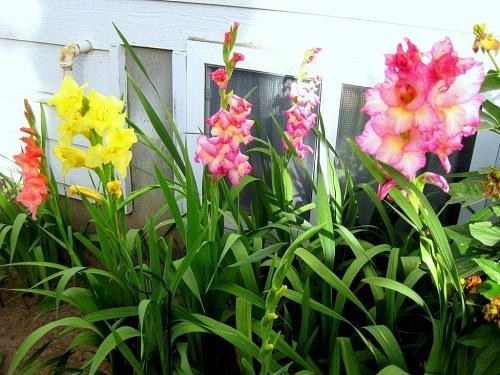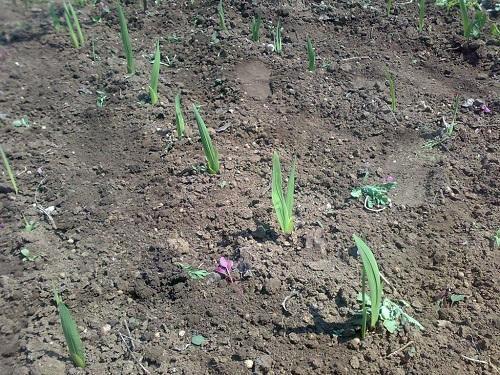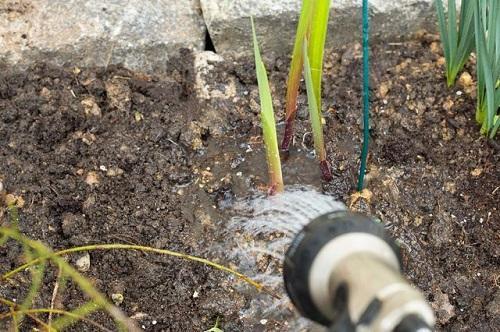We grow gladioli at home: how to care for flowers
 Gladioli are not difficult to grow. Of course, you will have to tinker a little with planting and digging the bulbs for the winter, but in general these are quite calm flowers that do not impose special requirements on care. In order for gladioli to grow well and bloom luxuriantly, it is necessary to carry out almost the same measures as when breeding other flowers, with slight differences regarding the wintering of bulbs.
Gladioli are not difficult to grow. Of course, you will have to tinker a little with planting and digging the bulbs for the winter, but in general these are quite calm flowers that do not impose special requirements on care. In order for gladioli to grow well and bloom luxuriantly, it is necessary to carry out almost the same measures as when breeding other flowers, with slight differences regarding the wintering of bulbs.
The basis for the care of gladioli are:
- the correct choice of landing site;
- regulated irrigation mode;
- periodic feeding.
Where is the best place to plant gladioli?

Gladioli they love light and warmth, so for planting bulbs, you should choose a well-lit area that is not shaded or blown out.
When planted in the shade, the plants develop poorly, and flowering either occurs later or is absent altogether.
It should also be borne in mind that the flower does not tolerate the proximity of groundwater, therefore, the garden bed must be placed on a flat or sloping ground so that the water can drain.
In one place, gladioli can be grown for no more than two years. When planting large corms, it is better to plant them separately from small ones so that they do not oppress them.
How to water?

On hot summer days, during flowering, it is necessary to water the flowers twice a week so that the flower stalks do not wilted and all the buds on them can open. The rest of the time, a single watering (once every 7 days) is enough, but abundant. It is important not to let water get on the leaves.
Every 10 days, carefully loosen the soil around the bulbs, otherwise the resulting crust will not allow the roots to "breathe". To prevent the earth from drying out so quickly, you can mulch the plants with humus.
When to fertilize gladioli?

Over the summer, flowers must be fed at least three times:
- When 3 leaves sprout from the bulbs, apply nitrogen fertilizers (25 g of urea per 1 sq. M. Planting).
- At the phase of appearance of 6 leaves, add potassium-phosphorus preparations (15 g of superphosphate and 10 g of potassium sulfate and ammonium sulfate).
- After the formation of the peduncle, exclude nitrogen components by adding 15 g of potassium chloride and 30 g of superphosphate.
To accelerate flowering, you can spray gladioli on the leaf with a solution of copper sulfate (0.2 g of the drug per liter of water).
Preparing bulbs for wintering

In mid-September, when cover scales are formed on the bulbs, they must be dug up. Cut the leaves, peduncles and roots with pruning shears, and soak the bulbs themselves in Fundazol solution for half an hour. Then rinse, rinse with a weak solution of potassium permanganate and put to dry for 2 weeks.
Store gladiolus bulbs in winter in cardboard boxes or cloth bags in a cool place (basement).